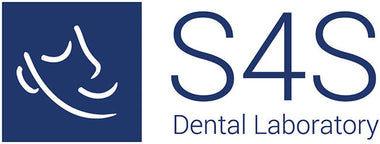HOW TO RELIEVE NECK PAIN AT BASE OF SKULL
Neck pain at the base of the skull can be frustrating and uncomfortable, often causing headaches, stiffness, and difficulty moving the head.
This type of pain can have many causes, from poor posture to stress and muscle tension.
If you're struggling with discomfort in this area, there are several ways to relieve this.
What causes neck pain at the base of skull?
Neck pain at the base of your skull is often linked to tension in the upper neck muscles, known as the suboccipital muscles.
These small muscles connect the skull to the upper spine and play a crucial role in head movement and posture.
Some common causes include:
• Poor posture (such as looking down at screens or hunching over desks)
• Stress and tension which can lead to muscle tightness
• Teeth clenching (bruxism)
• Temporomandibular Joint Disorders (TMD)
• Sleeping position or using an unsupportive pillow

How to relieve neck pain
There are several ways to ease discomfort at the base of the skull, from simple posture adjustments to targeted relaxation techniques.
Making small changes to daily habits can help relieve tension and prevent further strain.
Improve your posture
Maintaining good posture throughout the day can help prevent and reduce neck pain. Keeping screens at eye level, sitting up straight, and avoiding prolonged forward head positions can minimise strain on the muscles at the base of the skull.
Stretch and move regularly
Gentle neck stretches can help release muscle tension and improve mobility. Slowly tilting the head from side to side, gently rotating the neck, and bringing the chin towards the chest can ease stiffness. Taking breaks from prolonged sitting or screen use can also prevent muscle tightness from building up.
Use heat therapy and massage
Applying a warm compress to the base of the skull can relax tight muscles and promote blood flow. Massage, whether self-administered or from a professional, can help relieve muscle knots and improve overall comfort.
Manage stress and relax muscles
Tension from stress can contribute to neck pain, particularly in the muscles around the base of the skull. Relaxation techniques, such as deep breathing, mindfulness, or gentle yoga, can help reduce stress-related muscle tightness. Taking time to unwind and prioritise relaxation can prevent tension from worsening over time.
How can teeth clenching/grinding (bruxism) cause neck pain?
Many people unknowingly clench or grind their teeth, particularly at night, leading to muscle tension in the jaw and neck.
This can contribute to persistent pain at the base of the skull, as well as headaches and facial discomfort.
If you wake up with jaw soreness or notice wear on your teeth, bruxism may be a contributing factor to your neck pain.
How can the SCi (Sleep Clench Inhibitor) help relieve neck pain?
The SCi is a small, custom-made dental appliance designed to reduce the effects of teeth clenching, such as neck pain.
It works by limiting the ability to clench the jaw, helping to relax the muscles and reduce tension-related pain.
If you suspect that teeth clenching is contributing to your pain, consulting a dentist about an SCi may be a worthwhile step toward lasting relief.
Don't let neck pain impact your daily life
While occasional discomfort is common, persistent pain shouldn't be ignored.
Identifying what’s causing your symptoms can help you find the right solution, whether that’s adjusting your daily habits, incorporating relaxation techniques, or seeking professional support.
And, if you suspect that bruxism is contributing to your pain, a dental appliance like the SCi could provide relief by reducing muscle strain and preventing further tension.
Take the first steps now to relieve your pain and prevent long-term discomfort.


